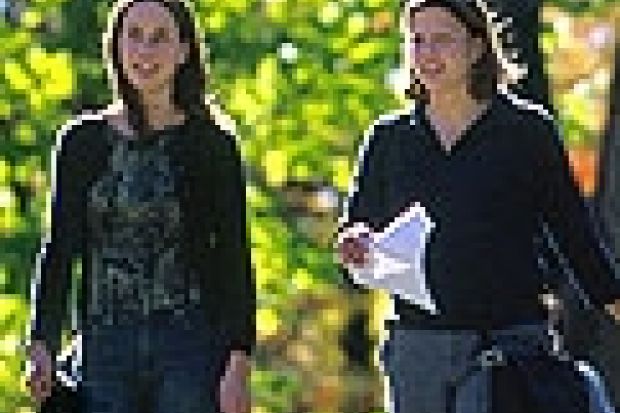With 4,400 applicants last year for just 465 seats in the entering class, Bates College in Maine is one of America's most selective schools. And some young people will do anything to get in.
Admissions director Wylie Mitchell has seen students "pad" their curricula vitae with so many extracurricular activities, he is sceptical they actually have time for them all. He is aware of a growth industry of "coaches" hired by families who hope for an edge in the admissions process. And he has had calls from anxious parents desperate for their children to get in.
"I've been asked, 'How can I package my child to make the best impression on the admissions committee?'," Mr Mitchell said.
It is a phenomenon that is getting worse as a mini-baby boom of students applies to American universities, at a time when a degree increasingly determines the prospects of a well-paid career.
"The pressure to get into selective schools is crushing," said Barmak Nassirian, associate director of the American Association of Collegiate Registrars and Admissions Officers.
"The criteria for getting in have gotten incredibly tight. If you don't take piano lessons, have at least two sports and contribute volunteer time, you're not even in the running," said Mr Nassirian.
This has put huge pressure on many teenage applicants, especially those who hope to attend top schools. "It's a significant problem for a particular stratum of society, typically the more well-educated, upper-income families," said Mr Nassirian. "It's a middle and upper middle-class anxiety."
It has become of such great concern that applicant stress was a major topic at the annual meeting of the College Board, an association of universities, one-third of whose members are admissions officers. Many said they hoped prospective students would undertake activities they truly enjoyed, rather than simply those they thought would give them an advantage in the high-stakes competition to get into college.
Harvard University has issued a report urging applicants to take a summer or even a full year off to consider what kind of person they would like to be and how their education relates to that.
William Hiss, vice-president at Bates, said: "To the extent that kids madly run around and pad their resume with things that in fact they can't give substantial time and attention to, it probably doesn't really help them in the long run. It's not good for the young people going through the process. But it also threatens to train young people to think about themselves as if they were a commodity and not a human being. That fundamentally runs at cross-purposes to what these kinds of colleges are supposed to be doing, which is helping young people think honestly about who they really are."
Register to continue
Why register?
- Registration is free and only takes a moment
- Once registered, you can read 3 articles a month
- Sign up for our newsletter
Subscribe
Or subscribe for unlimited access to:
- Unlimited access to news, views, insights & reviews
- Digital editions
- Digital access to THE’s university and college rankings analysis
Already registered or a current subscriber?
